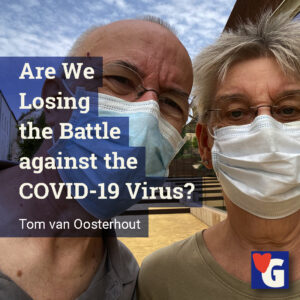
The battle against the covid-19 virus was from the beginning not centred on the problems of the people really suffering. Everybody hoped a vaccine would solve their personal problems. Such as not being able to go to work or to school or the theatre or a bar or restaurant.
The way the virus behaved though puzzled me: Why do we concentrate on a vaccine when most people do not suffer from the virus, even when they are infected? Why vaccinate everybody, when most people do not suffer from the virus? Why close all businesses, schools and public gatherings? Why wear masks? Why wreck the economy?
Nobody seemed to ponder the most fundamental question. Why don’t we focus on the perspective of the end of the pipeline? This end is that only a limited number of affected people suffer proportionally much more than the majority. Nobody suggested the end of the pipeline as the strategic focus of pandemic policies.
Some of the links might be affiliate links. As an affiliate associate, we earn a small commission when you purchase any of the products offered through the shared links at no extra cost for you. This helps us to maintain this website.
Table of contents
Public versus private concerns
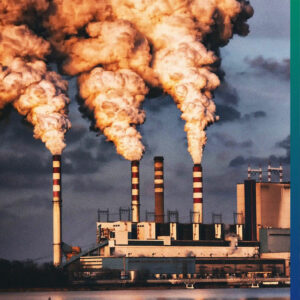
Of course, I understand that the pandemic caused, and still can cause severe capacity problems. Hospitals and ICU’s were and could again be overcharged. The question remains though. What would have happened when from the start substantial research efforts would have been invested in solving the problems at the end of the pipeline?
My guess is that by the time the inevitable second and third waves came up, the capacity problems would have been solved. Waves, that were inevitable because there is no vaccine yet. Waves, that were inevitable because nobody pointed at the importance of people’s lifestyle.
Do we fight the battle against the covid-19 virus on too many fronts? The quest to find solutions for the capacity challenge is a public funding issue. To find a vaccine is a commercial company issue. To improve your lifestyle is a personal issue.
What happens in such circumstances can even a child figure out. The public institutions cared for the end of the pipeline problem. The private companies (big pharmaceutical producers and their academic errand boys and girls) started, all at the same time, a worldwide competition to be the first to have a vaccine. These companies did not care an iota about the end of the pipeline.
The 7 rules of a pandemic
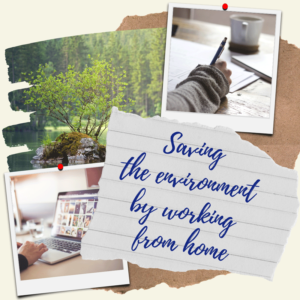
This article illustrates how life actually has always been. Humans had and still have to adapt. To be honest, humans are very good at adapting. Why could we otherwise at this very moment be living longer and healthier than ever?
This is partly because, as predators, we overstretch our natural resources. Could this be the same reason why we still have problems battling the covid-19 virus? Is this why we can’t control the pandemics that prey on us? Nobody knows.
Moreover, changing our predatory ways seems an almost impossible task. The way we live gives deadly pathogens free passage. Why pandemics exist in the first place, is best explained by the following 7 arguments:
- population density,
- pollution,
- domesticated animals,
- war,
- colonization,
- trade
- religious missionary work.
Indiscriminate pandemic, wave after wave

A fine example is the plague. The first recorded plague outbreak originated in Egypt in AD 540. Only 2 years later this outbreak devastated the city of Constantinople and subsequently massacred a quarter of the population in the eastern Mediterranean.
During the pandemic in Constantinople, some 10,000 people died each day. When this first wave of the plague ended, 40% of the citizens were dead. This was the start of 2 centuries of one plague wave after the other, throughout Europe. The plague hit the countries around the Mediterranean hardest.
There are 3 types of plague: bubonic, septicemic and pneumonic plague. The latter being the deadliest of them all, killing almost 70% of the humans infected. The septicemic and bubonic variants need an insect or animal vector to infect humans. The pneumonic plague spreads through the air via tiny droplets sprayed by infected humans. This is why it was so deadly. No matter what type, the plague killed indiscriminately.
Related: Healthy Lifestyle: 25 Tips on How to Spend Leisure Time
5 centuries of Black Death

In Europe, the plague, or Black Death as it soon was called, frequently returned. From 1300 to 1800, in wave after wave, the plague tried to decimate the population. This needs some perspective. For instance, in 4 years, from 1347 to 1351, due to the plague, some 20 million people lost their life. Historians estimate the population of Europe in the year AD 1000 at some 40 million people. This means that almost half the population died.
Some historians assume that this first wave originated from China (!). They give the following explanation. In 1347 Italian merchantmen, besieged in a citadel on the Krim, were fighting off Tatars. The Tatars were dying of the bubonic plague, which they had contracted while fighting in China. This made them abandon their siege. However, before the Tatars withdrew, they catapulted the dead and infested bodies of their comrades over the citadel walls.
As a result of this first recorded example of biological warfare, many Italians inside the citadel died within three days. Those that survived hosted the plague to Messina and after that to Genoa. Decimating the population of both cities. From there the plague spread its deadly toll over Europe.
Darwinian experiment
Despite the plague, during the 5 centuries of its reign, the European population grew at least 5 times its size of the year AD 1,000. One explanation is that infected humans who survived, participated in a Darwinian experiment: only the fittest of them survived. In the end, their offspring were immune.
Many explanations given for the plague are familiar to us. It was God’s punishment. The planets were in the wrong conjunction. Stagnant pools, dung heaps, decaying corpses, or Jews, polluted the atmosphere.
The solutions align with the given theories. From these solutions, the fate of the Jews was the most dreadful. Throughout Europe, the Jews were persecuted and killed.
Quarantenaria

Epidemics end for several reasons. The only reason a wave stopped, during the 5 centuries of the plague, was that in the end there were not enough healthy bodies anymore to infect.
We might assume that, in our time, modern medicine stopped epidemics. However, most pandemic illnesses vanish before any cure is invented. They often even disappear before the cause of the epidemic is identified.
The massive impact of the plague incited all too familiar countermeasures. At the end of the 14th and the beginning of the 15th-century cities such as Marseilles, Venice, Pisa and Genoa declared the rule of quarantenaria. People arriving from plague-infested areas had to stay in quarantine, for forty days.
Preaching, processions, feast-day assemblies, markets and travel were forbidden. Churches were closed. The sick were removed to a hospital. Everywhere the economy collapsed. Who would ever have dreamt that we would end up in the same circumstances?
Microbiological wit

The trouble with pathogenic microbes is that they seem to adapt reasonably quick. Take the example of typhoid. At first, the typhoid microbe migrated from rat fleas to rats. The rats and flies transmitted the typhoid microbe to humans.
Next, the microbes used human lice as allies to transmit to other humans. At present most people are deloused. The typhoid microbe needed another host. In the USA, this new host became the flying squirrel.
These creatures cause typhoid epidemics when they live close to humans. People keep flying squirrels as pets. Or the squirrels live in a nest under a roof in an attic, or in parks and woods near domesticated areas. The same qualities of typhoid infested flying squirrels apply to minks when it comes to the covid-19 virus.
Only the frail and vulnerable suffer?
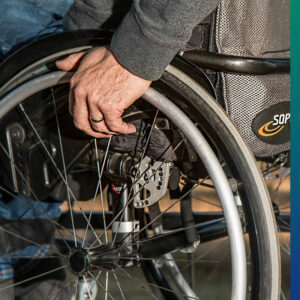
Darwin was right. The fittest survive. This is again true for the covid-19 epidemic. Only frail and vulnerable people get very sick and die. Again and again, people counter this. They argue that even very well trained sportsmen and women got the virus and became very ill.
How to explain this? Well trained people have but very little survival fat on their muscles. Once I observed how, within a relatively short period of 5 minutes, in chest-high water with a temperature of 20 degrees Celsius (68 Fahrenheit), three very well trained athletes got hypothermia.
When they would have been alone and would not immediately have returned to high ground, they would have fainted and drowned in a few minutes. Too much fat on your muscles is most definitely not good. In exceptional circumstances, too little can also be devastating. The covid-19 virus is exceptional.
What we learned so far from the battle against the covid-19
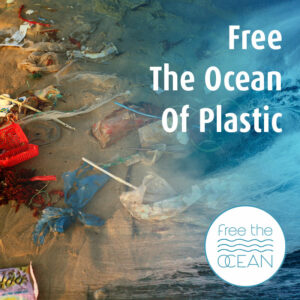
The first lesson concerns the number of Europeans. Across a period of five centuries, the European population did not really suffer much from all the waves of pandemics from 1300 to 1800. The fittest survived. The population grew five times its size, counting from the 40 million in AD 1000. On an individual level, the unnecessary loss of life is always tragic. From an evolutionary perspective, such loss seems inevitable.
The second lesson is that despite the huge investments we made in medical science, the frail and vulnerable still suffer. As they always suffered. This calls for the question of why the population could grow so substantially.
This brings us to the third lesson. This lesson is that you need to work on your physical health and well being. Keep your immune system in shape. If you do, you probably survive most pandemics. Your lifestyle is essential.
What did you learn from this article or the covid-19 pandemic? Please tell us in the comment box.


I agree. Covid has been a huge eye opener. Losing people who otherwise we thought we’re ‘fit and healthy’ were the ones who actually caught the virus or lost their life! I definitely need to work on keeping my immune system strong to protect myself and my children. Really good article
Hello Tina,
Thank you for your compliments.
For me one of the most confusing aspects is that every step I take outside the house is determined by the current pandemic.
We’re not allowed to leave the village. Although everybody here does.
We’re only allowed outside the house for work, shopping or a visit to the doctor.
We can’t visit bars or restaurants or sit on a terrace.
We have to wear masks all the time when outside on the streets or in a shop. This almost everybody does.
Even when I leave the house virtually, on Facebook, or talk with friends on whatsapp, it’s all about the pandemic.
The media only talk about 2 things: the virus and sports. The first you can get, the second you can’t visit.
The least you could say that these are interesting times. It also points at the value of life: family, our own health and a functioning welfare state.
Take care.
Regards, Tom
Hi Hannie,
A very thought-provoking piece, and I’m sure potentially controversial in many people’s eyes.
In the main, I tend to agree with the various points you have made, although I can only talk from a personal perspective.
As you are probably aware, here in the UK we are in our 2nd lockdown, although this is coming to an end on December 2nd 2020.
The majority of deaths in the UK (which now exceeds 55,000) have been the old and vulnerable, in fact, I believe this accounts for over 90% of these figures.
I myself was randomly selected for a Covid-19 test last month, and it was negative, although I have strictly adhered to the rules during our first lockdown, and thereafter.
There’s a number of things I didn’t really understand, and one of the main ones was that children under the age of 11 haven’t been, and still aren’t, required to wear masks, whereas the remainder of the population (where applicable) have been.
Does this mean that children of a certain age are completely exempt from catching Covid-19 or spreading the virus?
I think we have been left with many unanswered questions throughout lockdown, and probably beyond.
We could argue that in 20-30 years time, Covid will be viewed in the same way as Flu, and the elderly will require annual innoculations, as they are most at risk of death (the same can be said for Flu at this moment in time).
It’s a difficult argument to gauge, and I could look at it both ways, and say that the government has coped well, while also saying that many, many mistakes have been made over the past year.
For me, the whole Covid situation is one that I try to understand, but I am also left very puzzled by it all.
To be honest, I don’t even think we’re halfway through this “battle” yet and this “new way of life” is with us for quite a while yet, perhaps even throughout the entire of next year as well.
This really was interesting to read Hannie, and it has certainly opened my eyes to a few things I hadn’t previously considered.
Partha
Hi Partha,
Because I wrote the article, I hope you don’t mind that I (Tom) reply to your comment and not Hannie?
What I tried with the article is to put certain things in perspective.
To prevent individual suffering should be at the core of our collective efforts to control the pandemic.
Iceland is one of the very few countries that made this the most important aim of the battle against Covid-19.
The first they did was to gear up all healthcare systems to this goal. Next they rigorously followed the course of the pandemic with statistics. As a result, they hardly had any fatalities.
Moreover they discovered that fever is not a symptom of the virus. A combination of painful muscle contractions, a headache and a cough are the main symptoms. [Source: https://www.nature.com/articles/d41586-020-03284-3%5D
Should we trust and belief the Icelanders? For now I do.
Another striking issue is that we don’t know anybody who contracted the virus. Yes, we know people, who know people, who know people, who contracted the virus and are at home and have some trouble to get started again.
In contrast the stories and pictures in the media are confronting. Which adds oil to the already burning fears. Although the risks are very low for most people. The problem is that you just don’t know how vulnerable you are until you contract the virus. An experiment most people do not want to risk.
Where do we go from here? Let me quote Winston Churchill. On June 4, 1940 he stated in the House of Commons, after in a couple of days 335,000 soldiers were successfully evacuated from the beaches of Dunkirk and out of the claws of the approaching German army: “Wars are not won by evacuations.”
Do we have to paraphrase this quote by saying that “The battle against Covid-19 is not won by vaccinations.”? It’s too early. Let’s wait and see.
These are “No Ordinary Times”, to quote Eleanor Roosevelt, when she referred to the war that made her husband and Churchill so famous.
Which makes me wonder who will be remembered as heroes that won the battle against the virus. My bet is on the ‘frontline workers’. And yours?
Take care. Stay healthy. Have a nice day.
Regards, Tom
I would definitely agree with all points in this post. There’s something much bigger behind COVID-19 pandemic. I remember watching a video with one of American businessman/investor. He said that he’s sure that the whole pandemic has been predesigned to wreck the unstable American economy and prevent even bigger catastrophe.
Also, there’s the fact that we’re wrecking the environment and we need to stop and think of the ways how to preserve our planet. Elon Musk seems to be a leader in this domain. The man is brilliant.
All in all, a very interesting article. Thanks for sharing!
Hi Ivan,
Thank you for your compliments. Always appreciated.
The Covid-19 virus sure has some advantages. Less air and road travel, less production. Meaning less pollution.
Whether this is enough to prevent The Big Catastrophe? Probably not. This is why the idea that the pandemic is predesigned doesn’t make much sense to me.
I agree that Musk is brilliant, and with him many billionaire businessmen and -women. In business they are. And in achieving their wealth. At the same time, that is where for most of them their brilliance stops. Their brilliance is limited to their own purposes.
The rest of what is needed to be done on this planet, has to be done by you and me, and all those other tax paying and law abiding citizens. For me, ordinary street level workers, or frontline workers as they are referred to in these virus days, are far more inspiring. They do their duty, despite the enormous personal risks involved. They do their duty, to primarily serve others. They do their duty, despite the fact that every day they are confronted with all the appreciation going to the likes of Elon Musk, and his colleagues.
This handful of moguls will not save the planet. To the contrary. The planet can only be saved by the ordinary commoners like you and me.
Stay save, stay healthy. Have a nice day.
Regards,
Tom
Very interesting article Hannie. I have spent many years working with the elderly in a nursing home. I witnessed firsthand what devastating effects the simple flu could have on our elderly and frail. While you or I may feel miserable for a few days these people often died. We don’t lock down our populations at the start of cold and flu season every year. Somehow we understand that only the weak and frail will die from it and the rest of us will build up an immunity to that particular strain of flu. So why are we so panicked over COVID-19. I have an immuno-compromised grandson. As a type 1 diabetic, he has a much higher risk of developing complications or dying if he were to contract COVID. We all understand that and minimize the risk in order to keep him safe. However, I don’t believe shutting down entire countries is the answer. I don’t know the solution but I don’t think we are on the right track.
Hi Deb,
I’m sorry to say I’m not Hannie. Moreover, she did not wrote the article, I did. Nevertheless, the compliments are much appreciated.
At the moment I think we are on the right track. Simply because there is no alternative for the lockdown, the masks and all the other restrictions. All health care systems would become overcharged if we wouldn’t comply.
The interesting issue is that we could have been on a better track, when from the start everybody concentrated on the end of the pipeline: that is at those who are most affected. Now it’s too late for that.
A striking example is the development of a vaccine. With a bit of luck there are five types of vaccine: three commercial ones (although 2.5 is probably a better indication), a Russian one and a Chinese one. The last 2 are for poor countries, the first three for the rich ones.
However, that’s not my point. The point is, another 55 types of vaccines have been officially announced. Now I ask you: why? Is one vaccine not enough?
And where is the vaccine or the medication or therapy to cure those frail and vulnerable people who contracted the virus and got so terribly sick or died from it? Why are these 55 companies not consistently working on that? And all those academic labs funded by the taxpayers?
If this is what you mean by that we’re not on the right track, you are very right.
I Hope your grandson stays safe, and you too, stay healthy. Have a nice day.
Regards,
Tom
Lesson 1 points to the inevitable: life by definition leads to death. Lesson 2 also points to a fact that I can hardly influence: population growth I can hardly influence by myself. We live with more and we live with more people longer and longer. But lesson 3 offers perspective. A different lifestyle will enable us to accept 1 and 2 but/and also offers the possibility to change our relationship with nature. We are not only facing nature, we are a part of it. We must stop plundering the Earth, curb our travel addiction, reinvent the safety of our food and its origins. I fear that this revolution will not be able to take place without an even deeper crisis. Many people who are now under house arrest dream already of finding their old lives ‘normal’ again in the near future.
Hi Rein,
In Santa Monica, California (USA), the front of a boarded up building has the following text: “After The Plague Came The Renaissance”. Although it’s literally not true, the meaning is obvious. It is to uplift the spirits of the millions under house arrest.
For most people the slogan for the current crisis probably should be: “After The Virus Comes The Old Normal”. I share your ideas and hopes, but what we must expect is ‘the old normal’. Regrettably.
Although ‘practice what you preach’ is a beautiful principle, it would be very nice if more people would preach something else. About a different lifestyle, for instance. A lifestyle that centers on a better relationship with our fellow human beings and our environment. They might take you as an example.
What I like about your interpretation of my first lesson is that you think that life by definition leads to death. I wish everybody shared your opinion. As far as I know the amount of people that still believes there is a life after death is bigger than the amount that doesn’t. In my view this constitutes one of the biggest hurdles for the ‘revolutionary’ changes you and I crave for.
Keep up all your good work, have a nice weekend and I hope we will soon be able to visit each other again,
Regards, Tom
Hi Tom!
Thanks for sharing your thoughts about the COVID-19!
In my opinion the problem is too exaggerated! Of course, the virus exists and is dangerous for certain groups of people – many acquaintances of my friends suffered from the virus, but I think it is not the reason to shut down the entire countries and economies.
And the rules are too strict – it is not good for the health to wear a mask outside, everyone can decide by himself/herself to wear a mask or not.
I think there is something bigger behind the pandemic – maybe a world reset or just to restrict the people’s liberty as we all observe now, and it is anxious.
I guess a good solution is to make strong our immune system and do a lot of physical activity.
Stay healthy and safe!
Alex
Hi Alex,
Of course, everybody can decide to wear a mask or not. However, sometimes we should be wise and not think that such decision affects our freedom. Nor that vaccination affects our freedom.
The problem with our freedom is that it comes with all kind of risks. Many of those risks we cannot estimate. Not for ourselves, let alone for all the others.
How do you allocate the responsibility for your freedom? Are we as individuals only responsible for ourselves? If this were true nobody would dare to go out in the traffic. Not even with a car. How could we be sure that everybody would stop at a red traffic light? How could we ever be sure our food is safe? Or flying? Or our drinking water?
Our freedom goes as far as we trust others to exercise their freedom with caution, with regard for the rules that guide our freedom and with respect for the life and livelihood of others.
Sometimes you’re trust in others is challenged because the stakes are higher that you’re used too or would prefer. For instance when you’re life is at stake. As is now the case with the virus.
Moreover, the virus and the battle against the virus comes with tremendous uncertainties. How do you cope with such uncertainties? You’re safest when you do nothing? When you stay at home and don’t eat and drink anything? Because you never know what might happen? Of course not. These are no serious options. For nobody.
What we all try to do at the moment is to navigate on our own compass of trust. The beauty is that this gives us all the freedom available. Available at the moment. Tomorrow the challenge, and with the challenge our freedom, might open up totally new perspectives. We might as well enjoy and cherish these different perspectives of freedom. For now and for tomorrow.
Stay healthy. Be safe.
Regards,
Tom
In the area that I live, we are experiencing a large number of new cases of Covid daily. I do know that is making it very hard for some people to make the living that they were before. Many of the small businesses are hit the hardest. The economy is the biggest loser.
I do not think that having a vaccine is the solution to the problem today. Having people understand that it is a problem with the way we are living and interacting with each other.
We will always have pandemics in the world till the day man ends his time here on earth.
John
Hi John,
Thanks for your comment.
There are actually two major challenges with this virus. The first is that a specific group of people suffers most: the frail and vulnerable. The second is that the seriousness of the symptoms combined with the number of frail and vulnerable people being infected cause health care systems overload.
The first challenge has not been picked up but very recently. And even then with a minimum of effort. The second challenge has been solved, more or less and only in the rich welfare states. Although the impact of the solutions will have severe repercussions on the medium and long run, because the more regular health care interventions came to a standstill. It’s obvious that the latter will, again, specifically hurt the frail and vulnerable.
To call people to act responsibly during this pandemic has been met with some reluctance, to say the least. On the other hand many people abided by the call. To act more responsibly, by changing the way we live, will be an even bigger challenge. In the USA 60% of people responding to a poll said they do not want to be vaccinated. Given the polling quality in the USA, the number of dismissive people will probably be much larger.
Let’s hope that when the next pandemic arrives we’ve learned enough from this one to perform better.
Stay safe. Stay healthy. Have a nice day.
Regards,
Tom